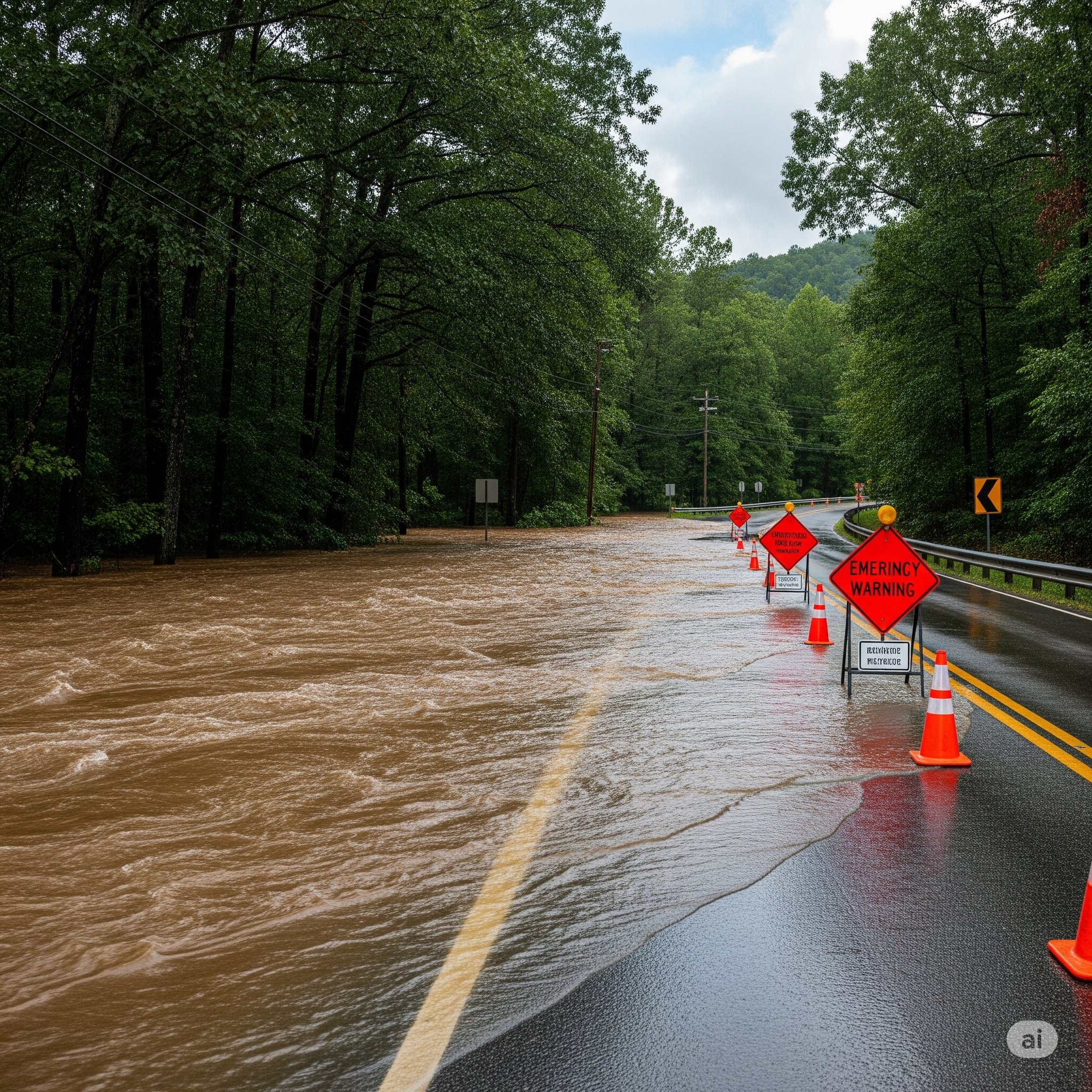
Staying Safe After the Storm: A Western NC Guide to Flood Water Safety
WNC -- As Western North Carolina continues to recover from severe weather events, like the recent impact of Hurricane Helene, it's crucial to prioritize safety, especially concerning floodwaters.
The North Carolina Department of Health and Human Services (NCDHHS) emphasizes preparedness and offers vital guidelines to protect yourself and your family.
Prioritizing Clean Water
After flooding, identifying safe water sources and having a backup plan for clean drinking water are paramount. If you're on a municipal water supply, always follow the guidance of your provider, who will issue boil water advisories or other instructions as needed.
For those with private well water, extreme caution is advised. Do not drink from your well if extensive flooding has occurred, and refrain from turning on the electricity to your pump until floodwaters have fully receded. Rely on your water reserves and bottled water until your well has been properly disinfected and tested. The NC State Laboratory of Public Health provides bacteria test kits, and you should contact your local health department's private well program for testing.
Avoiding Hidden Dangers
Floodwaters can present several unseen hazards:
Carbon Monoxide Poisoning: If you've lost power, never use gas-powered generators, outdoor grills, or camp stoves in enclosed spaces. These devices produce carbon monoxide, an odorless and colorless gas that can be deadly. Always operate them outdoors, at least 20 feet away from windows, doors, and vents.
Electrical Hazards: Be extremely careful touching any electrical equipment near flooded areas. Water conducts electricity, and downed power lines or compromised electrical systems can pose a severe electrocution risk. If your home has been flooded, Duke Energy advises turning off your power at the circuit breaker and having a licensed electrician inspect your system before restoring power.
Contamination and Hygiene: Floodwaters are often contaminated with sewage, chemicals, and other harmful substances. Practice good hygiene diligently after any contact with floodwaters. Wash your hands thoroughly with soap and water before preparing food or eating. It's especially important to keep children safe by not allowing them to play in floodwater and washing their hands frequently, always before meals.
Cleaning Contaminated Surfaces: Toys or food preparation surfaces that have come into contact with floodwater should be disinfected. Prepare a fresh bleach solution daily (1 cup of bleach in 5 gallons of water) and apply it to surfaces for at least five minutes, then rinse with clean water, especially for surfaces that will come into contact with food or mouths. Remember to keep bleach solutions out of reach of children and never mix bleach with other cleaners.
Returning Home Safely
A flooded building remains a dangerous environment. For comprehensive guidance on what dangers to watch for, how to stay safe while cleaning, and proper cleanup procedures, consult the factsheet, "After the Flood: Getting Back Into Your Home Safely."
Staying informed and adhering to these safety guidelines can significantly reduce risks and aid in a safer recovery process for our Western North Carolina communities.
WNCTimes
Image: AI Generated by WNCTimes


 How to resolve AdBlock issue?
How to resolve AdBlock issue? 